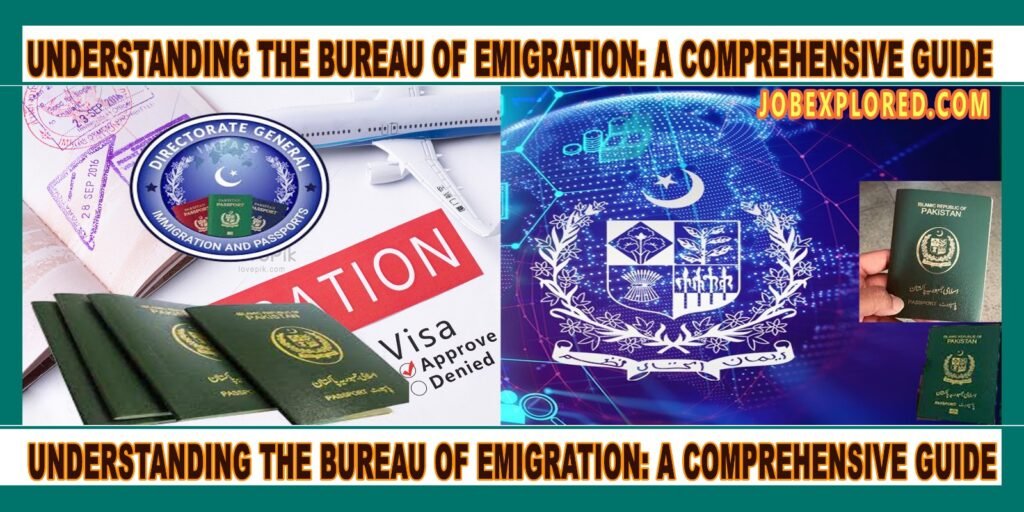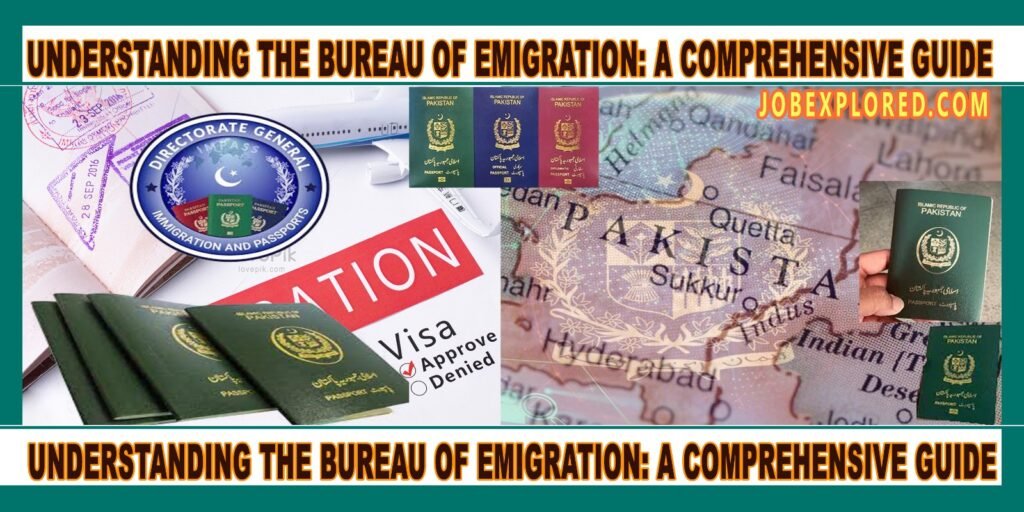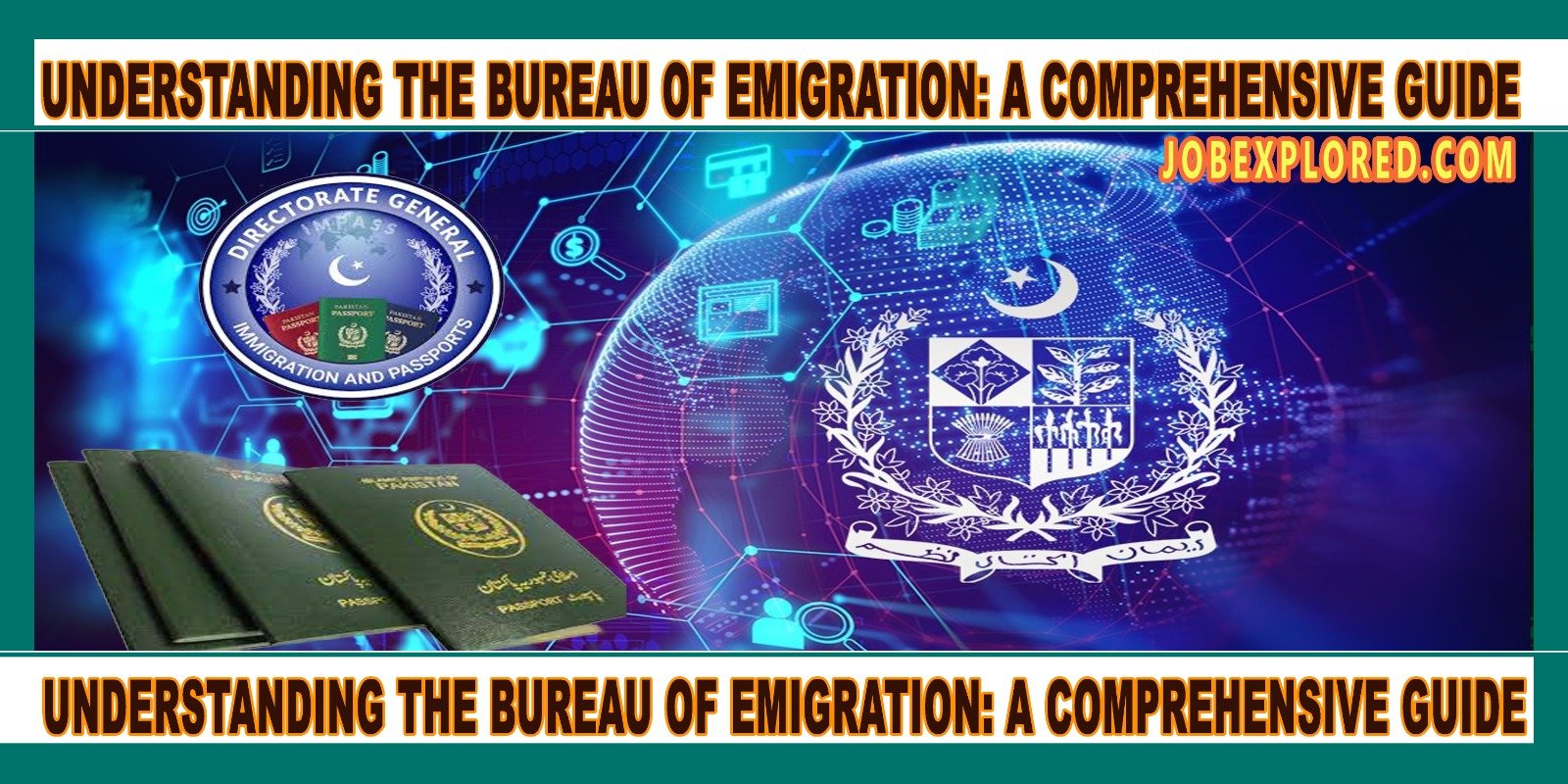What is the Bureau of Emigration?
The Bureau of Emigration plays a pivotal role in managing the migration and emigration processes within a particular jurisdiction. Established to oversee the movement of people across borders, this agency functions as a regulatory body that ensures compliance with national and international migration policies. Its primary objectives include facilitating safe, orderly, and legal migration, while safeguarding the rights of emigrants
Operating under governmental frameworks, the Bureau of Emigration is responsible for issuing necessary permits, visas, and other travel documents that allow individuals to emigrate. This involves extensive verification processes to confirm the identity, intentions, and eligibility of prospective emigrants. Additionally, the Bureau liaises with various national and international organizations to streamline emigration policies, aiming for consistency and efficiency in migration practices.
Another essential function of the Bureau is to provide resources and support services to emigrants. This includes pre-departure orientation sessions, information on destination countries, assistance with legal requirements, and guidance on rights and responsibilities while abroad. Such initiatives help equip emigrants with the knowledge necessary to navigate their new environments successfully, thereby promoting their well-being and integration into host communities.
The significance of agencies like the Bureau of Emigration cannot be overstated; they serve as a vital link between individuals looking to improve their lives through migration and the legal frameworks that govern such movements. By carefully monitoring and regulating the emigration process, the Bureau of Emigration contributes to broader national interests, including economic development and demographic stability. Understanding the complexities of emigration is crucial for anyone considering this life-changing decision, making the role of the Bureau fundamental in today’s interconnected world.

Services Offered by the Bureau of Emigration
The Bureau of Emigration plays a pivotal role in assisting individuals who wish to leave their home country for opportunities abroad. The services provided by this institution are designed to ensure a seamless transition for emigrants, covering various aspects of the emigration process. One of the key functions of the Bureau is to assist individuals with visa applications, guiding them through the necessary paperwork and requirements that international travel demands. This service helps prevent potential issues that might arise due to incomplete or incorrect documentation, thereby streamlining the application process.
In addition to visa assistance, the Bureau of Emigration also facilitates the preparation of legal documentation required for relocation. This includes certificates, notarizations, and other legal paperwork that may be required by foreign entities. By providing resources to navigate these legalities, the Bureau helps individuals feel more secure about their decision to emigrate.
Moreover, the Bureau offers counseling services that address employment opportunities abroad. Given the complexities involved in seeking a job in another country, this support is invaluable. Emigrants can benefit from tailored advice regarding job markets, industry demands, and skill requirements in various nations. This guidance can significantly enhance an emigrant’s chances of securing employment once they have settled into their new environment.
Finally, the Bureau provides resources that are crucial for individuals looking to settle in new countries. Information regarding housing, healthcare, and cultural adaptation is often included in these resources, which ease the acclimatization process for newcomers. Through these comprehensive services, the Bureau of Emigration not only facilitates the logistical aspects of leaving a country but also fosters a supportive network for those embarking on such a significant life change. Understanding the breadth of these offerings can empower aspiring emigrants, enabling them to navigate their journey with increased confidence.
The Process of Emigration: Step by Step
Relocating to a new country is a major decision that demands thorough preparation and a clear understanding of the necessary steps. The Bureau of Emigration provides a structured approach to facilitate this journey, ensuring that individuals are well-informed of the necessary steps. The first step typically involves researching potential destination countries, focusing on immigration policies, lifestyle, and opportunities available. It is essential to identify a country that aligns with personal and professional goals.
Next, individuals must gather essential documents required for the emigration application. This often includes a valid passport, birth certificate, educational credentials, and professional references. Depending on the destination, additional documents such as police clearance certificates may also be necessary. Applicants should also verify if they need to undergo specific health checks or obtain vaccinations relevant to their destination.
After the paperwork is gathered, the next important step is to finalize the emigration application. This may involve filling out various forms, paying application fees, and submitting supporting documents to the Bureau of Emigration or the respective embassy. Timelines for application processing vary widely based on the country and specific visa categories. Therefore, it is prudent to follow up regularly on the status of one’s application.
Another important aspect to consider is preparing for potential interviews, especially for countries that require consular interviews before granting a visa. Familiarizing oneself with common interview questions and immigration laws can enhance the chances of success. Additionally, financial planning is paramount; this includes understanding cost of living differences and ensuring access to adequate financial resources upon arrival in the new country.
Ultimately, navigating the emigration process demands diligence and thorough research. By following the steps laid out by the Bureau of Emigration, individuals can enhance their likelihood of a successful transition to life abroad.

The Impact of Emigration on Society
Emigration has a key impact on influencing the dynamics of both the origin and destination countries. From an economic perspective, remittances sent back home by emigrants serve as a crucial source of income for many families and communities. These financial transfers can elevate living standards, support local businesses, and contribute to overall economic development in the home country. According to recent statistics, remittances can account for a substantial percentage of gross domestic product (GDP) in some nations, thereby highlighting their importance in alleviating poverty and stimulating growth.





Leave a Reply